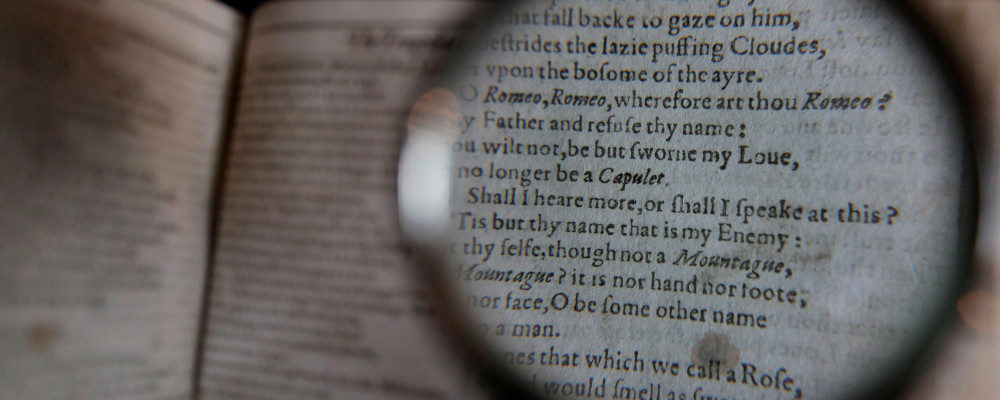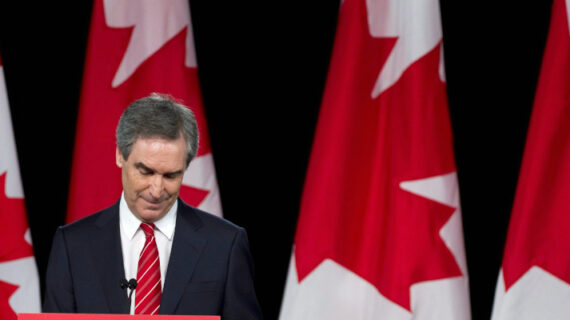Linguists will tell you that the silent “p” in English words has a rational explanation. It is, they say, evidence of English’s ability to absorb and standardize words from other languages, in this case from ancient Greek, mostly in scientific and medical terms. But from a young age I knew better.
The silent “p” is not just a vestigial appendage, it is a joke embedded in creation. Like a platypus or a yawn, it is a quirk of existence, evidence of the humour woven into our world. (Besides, linguists have a patchy record when it comes to the history of language: Goropius was convinced that Antwerpian Brabantic, a Dutch dialect spoken in and around Antwerp, was the original Adamic language—as though the Garden of Eden might have been in Belgium.)
I knew it was a joke the first time I saw the word “phthisis.” Later, I saw that others, including some of the greatest writers of the 20th Century, knew it too. P.G. Wodehouse got the joke and managed to extend it over four novels in the form of a character called Psmith (with a silent “p” “as in pshrimp,” as the character helpfully explains). So did Nabokov, although in his darkly Russian way it is hard to be sure that you are getting the same joke that he is. The name of his eponymous character Pnin begins with a half-pronounced, half-swallowed “p,” something the reader must figure out by ruling out the various mispronunciations by other characters.
The silent “p” is a door, although not the only one, into the world of language and the language of the world. Once you realize that words are not just markings on a page but a place you can crawl into and from which you can look back out at the world, you will never read, speak, or write the same way again. You see that language expands to fill the world and that we can change the shape of words to fit it better. Where there isn’t a word to capture something, you can invent a new one.
From a young age listening to my parents, I learned that language is always open to negotiation. In my mother’s anarchic speech, words are always reconsidering themselves from new angles: “pussy willows” become “wussy pillows,” “gazebo” rhymes with “maze-bo,” and sudden new accents can tip words off-kilter, wrong-footing familiar syllables, revealing ambiguity and unresolving certainty. Her language is plastic, protean and funny—funny “curious” and funny “amusing”, because irony is the root of humour. I heard early from her and from my father how language can be joyously silly while remaining serious.
As I read more for myself, I learned that there can be wizardry in wordplay. Puns are simple tricks, a conjurer’s warm-up act, but there are writers who go beyond sleight-of-tongue and touch the deep magic latent in language. That is not a metaphor—I mean it quite literally. There is a reason that esoteric languages, spells and curses, shibboleths and secret passwords recur in both myth and history. Mastery of language means mastery of what lies behind language. Even if you can’t access the magic yourself, you can feel its incantatory effect, especially in poetry.
Poetry is a special form of language because it is unpredictable, and it is unpredictable because it does not communicate ordinary things in the ordinary way. You wouldn’t use poetry for a contract, unless it were a sacred undertaking; you use poetry to say something that cannot be said without it. Poetry expands meaning by disobeying linguistic rules and upsetting expectations. Poetic devices resist the literal; they transgress and subvert it, forcing multiple meanings into single lines, phrases, and even words. We resort to poetry when prose is too constraining.
We use poetry when we want to remember an event, a person, or a place. The stories of a people are written first in poetry; the prose comes after. On solemn and joyous occasions of state, we sing our national anthems, which more than the texts drawn up by lawyers are our original and true constitutions. In the past, even some laws were written in poetry. John Huizinga records that parts of the Icelandic and Frisian legal codes are still written in verse, an atavistic reminder of the origins of social order in the fireside songs passed down through generations.
This doesn’t mean that poetry is always about grand and ineffable subjects, but it does mean that whatever a poem is about becomes grand and ineffable. Its rhythms and images combine to create what the poet Américo Ferrari called an “obscure clarity,” which insinuates us into the “unspeakable where, perhaps, the nucleus of the living relation between the poem and the world resides.”
Yeats was particularly good at this. The hypnotic opening line: “I will arise and go now, and go to Innisfree” is an example, as is the second stanza of The Second Coming, where Yeats describes an image he sees forming in the Spiritus Mundi:
… somewhere in sands of the desert
A shape with lion body and the head of a man,
A gaze blank and pitiless as the sun,
Is moving its slow thighs, while all about it
Reel shadows of the indignant desert birds.
The darkness drops again; but now I know
That twenty centuries of stony sleep
Were vexed to nightmare by a rocking cradle,
And what rough beast, its hour come round at last,
Slouches towards Bethlehem to be born?
That is not just poetry; it is very obviously a powerful and terrible spell. That “rough beast” now exists in our world because Yeats summoned it with his words. It is as real as any physical monster, and perhaps more dangerous.
Dylan Thomas pushed a little further than Yeats in manipulating the music of language. In Fern Hill, the boy’s “lamb white days” spent by “the “the rivers of the windfall light” and in “the swallow thronged loft” capture the world we inhabit as children, which fades into cherished and half-remembered but fully-felt impressions as we grow up. It is a world that poetry can bring back briefly, like home movies projected onto mist or a dream of something that was once real.
As a younger writer, Thomas had tried to force language to its limits. He learned instead the limits of his powers. In Altarwise by owl-light we see the young poet straining, struggling with language as Jacob wrestled with the angel. Sense is shredded, but revelation remains shrouded:
his was the crucifixion on the mountain,
Time’s nerve in vinegar, the gallow grave
As tarred with blood as the bright thorns I wept;
The world’s my wound, God’s Mary in her grief,
Bent like three trees and bird-papped through her shift,
With pins for teardrops is the long wound’s woman.
Thomas’s effects spiral and soar but we stay firmly on our side of the divine divide. “What is the metre of the dictionary?” the poet asks earlier in the poem—not so much as a genuine question but in protest at his inability to break through language to what lies behind and beyond it. Even Thomas’s linguistic genius could not quite crack the code.
Serious nominalists and post-rem structuralists will scoff at the idea of language as a code we did not set concealing a truth we did not make. No doubt they also believe that the mot juste is just a conventional agreement within a relational structure of human making. But writers know what mathematicians know: the harmony precedes the system. The right word falls into place. We have to find it, but we don’t make the beauty it unlocks.
Around the time Thomas was beating the bounds of language, James Joyce broke through them. Curiously, Joyce’s own poetry was polished but slight and simple; it was in prose that his words attained the subtlety and complexity of great poetry. After demonstrating a swift and successive mastery of forms between 1914 and 1918, starting with the short story and progressing through the novel, a play, and a volume of poetry, the publication of Ulysses in 1922 showed the possibility of a unique breakthrough. But it wasn’t until 1939, in Finnegan’s Wake, that Joyce produced a work of such dazzling and daunting magic that, in a world that has since witnessed the atomic bomb, the moon landing, sub-atomic physics (the name “quark,” incidentally, comes from Finnegan’s Wake), and virtual reality, we still open it with uncomprehending awe, like a book of miracles.
In Finnegan’s Wake, Joyce did not so much master language as sacrifice it and resurrect it, word by word and phrase by phrase, until it was reborn as his creation. As readers, we enter Joyce’s language as an alien-familiar place, disoriented, but when we speak the words aloud we can start to see his new world forming around us. Swirl those allusive first lines in your mouth and see the land swim into sight:
riverrun, past Eve and Adam’s, from swerve of shore to bend of bay
Joyce’s language manipulates the earth itself, swerving and bending it into existence. Few people can command words to recreate the language, fewer still can command words to recreate the world. There are many recordings available of all or parts of Finnegan’s Wake, including by Joyce himself, but just as you can’t really understand Shakespeare until you perform or direct him, you can’t really understand Joyce until you speak him.
A year after Joyce began writing Ulysses, Ludwig Wittgenstein, then a young lieutenant stationed near the Eastern Front, wrote in his soldier’s diary: “Die Grenzen meiner Sprache bedeuten die Grenzen meiner Welt.”(“The limits of my language mean the limits of my world.”) When we push language beyond language, as Joyce and the greatest poets do, we move beyond the limits of the world into a place where we know, with the certainty of a homing instinct that: “In the beginning was the Word, and the Word was with God, and the Word was God.”




